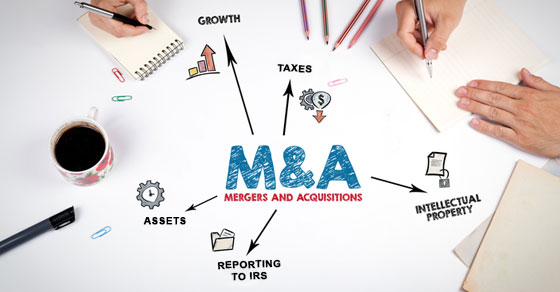

Low interest rates and other factors have caused global merger and acquisition (M&A) activity to reach new highs in 2021, according to Refinitiv, a provider of financial data. It reports that 2021 is set to be the biggest in M&A history, with the United States accounting for $2.14 trillion worth of transactions already this year. If you’re considering buying or selling a business — or you’re in the process of an M&A transaction — it’s important that both parties report it to the IRS and state agencies in the same way. Otherwise, you may increase your chances of being audited.
If a sale involves business assets (as opposed to stock or ownership interests), the buyer and the seller must generally report to the IRS the purchase price allocations that both use. This is done by attaching IRS Form 8594, “Asset Acquisition Statement,” to each of their respective federal income tax returns for the tax year that includes the transaction.
If you buy business assets in an M&A transaction, you must allocate the total purchase price to the specific assets that are acquired. The amount allocated to each asset then becomes its initial tax basis. For depreciable and amortizable assets, the initial tax basis of each asset determines the depreciation and amortization deductions for that asset after the acquisition. Depreciable and amortizable assets include:
In addition to reporting the items above, you must also disclose on Form 8594 whether the parties entered into a noncompete agreement, management contract or similar agreement, as well as the monetary consideration paid under it.
The IRS may inspect the forms that are filed to see if the buyer and the seller use different allocations. If the tax agency finds that different allocations are used, auditors may dig deeper and the examination could expand beyond the transaction. So, it’s best to ensure that both parties use the same allocations. Consider including this requirement in your asset purchase agreement at the time of the sale.
The tax implications of buying or selling a business are complex. Price allocations are important because they affect future tax benefits. Both the buyer and the seller need to report them to the IRS in an identical way to avoid unwanted attention. To lock in the best results after an acquisition, consult with us before finalizing any transaction

